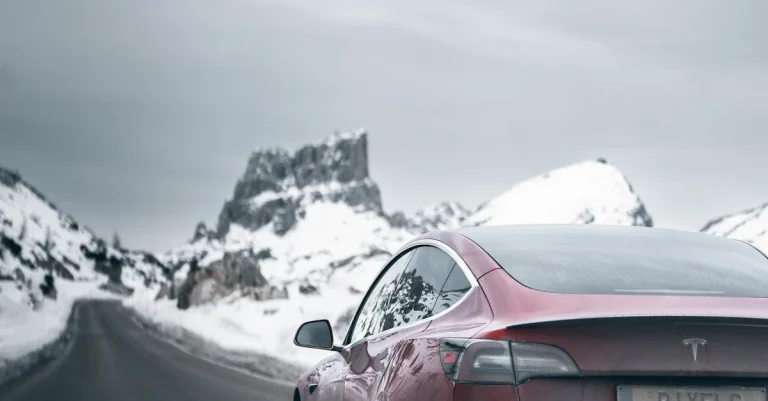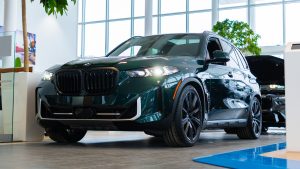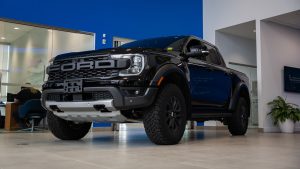In winter months, drivers may wonder how electric vehicles (EVs) handle winter driving conditions compared to traditional gas vehicles. We’ll go over how electric vehicles perform in snow, ice, and cold weather, and help you to maximize your EV’s performance this winter!
Understanding Winter Performance Differences
Electric vehicles generally have similar driving performance to gas vehicles in terms of traction and acceleration in winter conditions like snow, ice, and cold weather. However, there are some differences to consider:
Starting:
Electric vehicles are particularly well-suited for winter conditions due to their simplified mechanics compared to gas-powered vehicles. Gas vehicles have complex engine parts that cause them to struggle and stall in cold temperatures. However, when EVs are plugged in and warm, they have no trouble starting in even the coldest weather. They create instant heat and turn on like regular electronic devices. Another bonus is the built-in preconditioning feature which pre-heats your EV while it charges meaning you won’t have to deal with a cold car or a frosty windshield!
Traction:
Both electric and gas vehicles can experience reduced traction on slippery surfaces like snow and ice, but EVs have the benefit of a lower center of gravity due to the placement of their heavy batteries on top of the axels, which can improve stability and traction!
Acceleration:
In terms of acceleration, EVs provide instant torque and smooth power delivery, which creates better acceleration than gas vehicles and can be a benefit in slippery conditions.
Regenerative Braking:
Regenerative braking captures energy during braking and converts it back into usable power. In cold weather, this can sometimes be less efficient for EVs because of reduced energy generation. In snowy or icy conditions, your EV may not be able to brake with regenerative braking alone and will also use traditional braking, reducing the amount of energy stored. To mitigate this, make sure to maintain smooth breaking to maximize energy regeneration.
Read more: Regenerative Breaking Performance in Winter
Range:
A difference between EVs and gas vehicles in winter is the impact on driving range. Cold temperatures can reduce the efficiency of EV batteries, leading to decreased range of up to 30% compared to gas vehicles which experience up to 20%. However, advancements in battery technology and thermal management systems are helping to mitigate this issue.

So, are electric vehicles good to drive in the winter? Yes! Overall, electric vehicles offer the same, if not better performance during winter, with the only downside being reduced range. EVs have advantages in terms of traction and acceleration due to their design and drivetrain technology, and the reduced range can be mitigated in multiple ways which you can read here! By learning more about EVs in the cold weather, you can drive an EV in winter with confidence!


